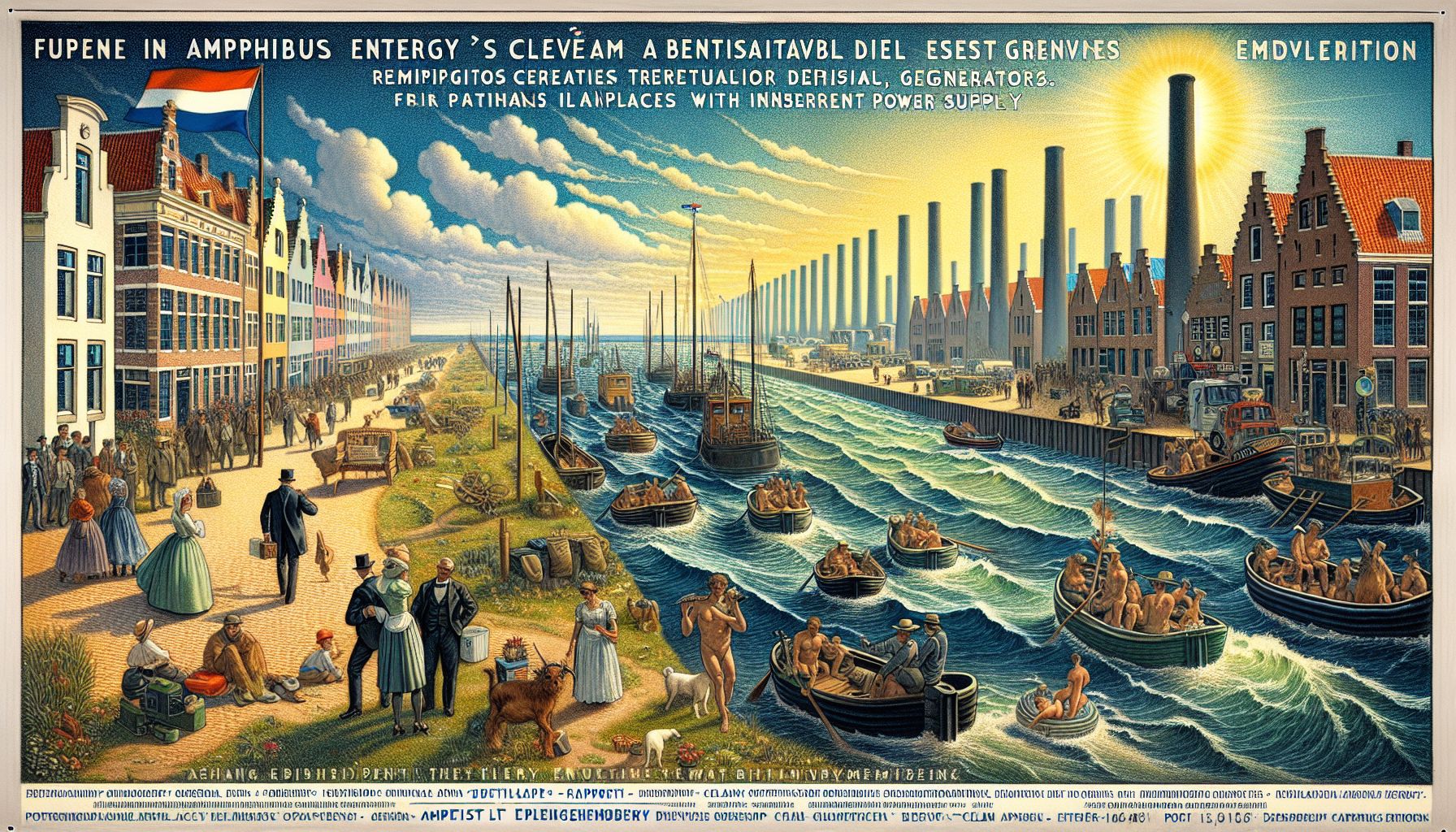Dutch Government Backs Green Alternative to Diesel Generators

Netherlands, Monday, 15 July 2024.
The Dutch government introduces subsidies to promote sustainable energy solutions, supporting Amphibious Energy’s clean alternative to polluting diesel generators. This initiative aims to reduce emissions and encourage adoption of greener technologies in areas with unreliable power supply.
Amphibious Energy’s Innovative Solution
Based in Delft, Netherlands, Amphibious Energy has developed the Energypod, an innovative system designed to replace traditional diesel generators. The Energypod harnesses both solar and wind energy, utilizing compact wind tunnels and solar panels to generate electricity. This versatile unit is built within a container, making it easily transportable and deployable in diverse locations, from agricultural fields to offshore platforms. The Energypod’s design ensures it can provide power in areas with intermittent or non-existent power supply, addressing both environmental and practical challenges associated with diesel generators.
Government Support and Wider Implications
The Dutch government’s new subsidies are expected to accelerate the adoption of the Energypod and other clean energy solutions. By providing financial incentives, the government aims to mitigate the environmental impact of diesel generators, which are notoriously polluting and inefficient. This move is part of a broader effort to achieve the country’s climate goals, including reducing greenhouse gas emissions and transitioning to a more sustainable energy infrastructure. Analysts believe these subsidies will not only benefit the environment but also create economic opportunities by fostering innovation and supporting green technology industries.
Potential Applications and Impact
The Energypod can supply between 10 to 20 kilowatts of power, making it suitable for a variety of applications. Its compact size and efficiency make it an ideal solution for remote agricultural operations, maritime activities, and emergency response scenarios. Organizations like the Red Cross could leverage the Energypod for rapid deployment in disaster-stricken areas, providing critical power in emergency situations. This flexibility and reliability could save lives and reduce the carbon footprint of humanitarian operations.
A Broader Movement Towards Renewables
The introduction of these subsidies aligns with a global trend towards renewable energy solutions. Similar initiatives are being seen worldwide, such as ib vogt’s projects in Indonesia aimed at replacing diesel generators with solar power. The Dutch government’s proactive approach reflects a growing recognition of the importance of sustainable energy in combating climate change. By supporting companies like Amphibious Energy, the Netherlands is positioning itself as a leader in green innovation, setting an example for other nations to follow.

